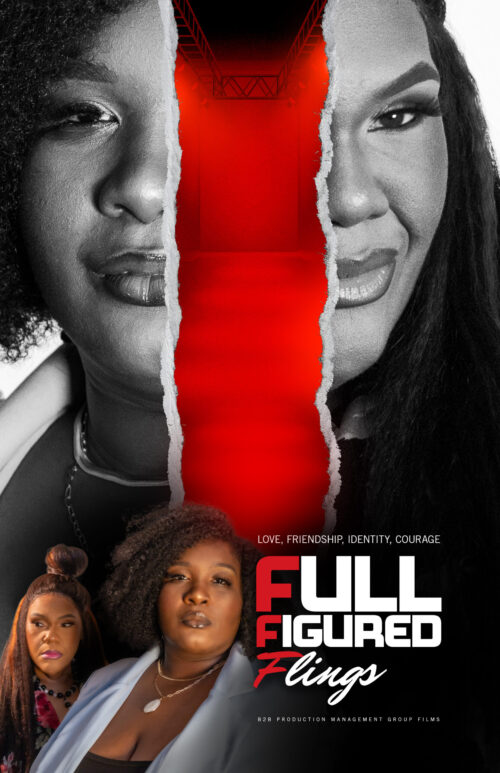We Speak Actors
Roslyn Kind Guests On “If These Walls Could Talk” With Hosts Wendy Stuart and Tym Moss Wednesday, August 7th, 2024

Who else but hosts Wendy Stuart and Tym Moss could “spill the tea” on their weekly show “If These Walls Could Talk” live from Pangea Restaurant on the Lower Eastside of NYC, with their unique style of honest, and emotional interviews, sharing the fascinating backstory of celebrities, entertainers, recording artists, writers and artists and bringing their audience along for a fantastic ride.
Roslyn Kind will be a featured guest on “If These Walls Could Talk” with hosts Wendy Stuart and Tym Moss on Wednesday, August 7th, 2024 at 2 PM ET live from the infamous Pangea Restaurant.
Wendy Stuart is an author, celebrity interviewer, model, filmmaker and along with If These Walls Could Talk she hosts TriVersity Talk, a weekly web series with featured guests discussing their lives, activism and pressing issues in the LGBTQ Community.
Tym Moss is a popular NYC singer, actor, and radio/tv host who recently starred in the hit indie film “JUNK” to critical acclaim.

Roslyn Kind is a dynamic, multi-talented entertainer who has forged a successful career in all facets of entertainment from critically acclaimed recordings to sold-out performances on Broadway and in top concert venues and nightclubs the world over. Ms. Kind recently performed with her sister, Barbra Streisand, during an 8 city US/Canadian tour and a 6 city International tour, which brought her to acclaimed venues including the Hollywood Bowl, The 02 Arena in London and Rogers Arena in Vancouver. In addition to performing historic duets with her sister, Ms. Kind shared the stage with her nephew Jason Gould and famed trumpeteer Chris Botti.
A vibrant musical artist, Ms. Kind is familiar to both national and international audiences for her headlining appearances at some of the most prestigious venues including Lincoln Center, The Greek Theater and London’s Cafe Royal. The London Times noted “To say she is superb would be an understatement.” In 2006 she made her long awaited and received Carnegie Hall debut with her frequent musical collaborator and friend, Michael Feinstein.
She began her performing career while still in her teens with the release of her first album, Give Me You. A whirlwind of performing activity followed including engagements at the nation’s top nightclubs, acclaim from Time Magazine and three appearances on The Ed Sullivan Show leading up to her show-stopping New York debut at the Plaza Hotel’s legendary Persian Room.
Her follow up singles and a second album, This is Roslyn Kind, showcased her growth as a recording artist comfortable in a wide range of musical genres. Ms. Kind’s latest CD release, Come What May, which the New York Times described as “splendid and sizzling,” further establishes her reputation as a virtuoso vocalist possessing impeccable phrasing, a richness and clarity of tone and an undeniable emotional connection to her always first-rate material.
Concurrent with her recording career, Ms. Kind is an accomplished theatrical performer. On Broadway, she starred in the crowd-pleasing musical revue 3 from Brooklyn. Additional theatrical credits include the Off-Broadway production of Show Me Where the Good Times Are, Leader of the Pack and Ferguson the Tailor. She also stopped the show in a critically lauded Los Angeles production of William Finn’s Elegies; The Hollywood Reporter noted, “Roslyn Kind sings like a dream.”
Ms. Kind’s extensive list of television credits include the film Switched at Birth, multiple episodes of NBC’s Gimme a Break, Throb starring Jane Leeves and a humorously memorable turn as herself on CBS’s The Nanny. This appearance also showcased her talent as a songwriter in a performance of her composition, Light of Love. She also performed the title song for the made-for-TV movie Not Just Another Affair, as well as the song Hold On for the award-winning film Tru Loved. Roslyn appeared in the Hallmark movie “Ladies of the House” with Florence Henderson and Donna Mills. Ms. Kind has appeared on virtually every major talk/variety show including the Tonight Show, Saturday Night Live, Entertainment Tonight, Access Hollywood and Good Morning America. Among her international television credits are England’s Pebble Mill Show, Canada’s Musique Plus, and Unscripted Bio as well as For Me, Formidable, a Charles Aznavour special for European TV co-starring Dusty Springfield. In motion pictures, Ms. Kind has had starring roles in The Underachievers and I’m Going to Be Famous.

Ms. Kind also takes pride in her work for various animal welfare, Alzheimer’s and AIDS related charitable organizations including HSUS, APLA and Broadway Cares Equity Fights AIDS for which she contributed a song selection to Cabaret Noel, a volume in their annual series of holiday CD releases. Rolsyn has recently become a proud member of the Sea Angels, women supporting women by awarding grants to grassroots, female founded, non-profit organizations that provide mentorship, funding and resources to a diverse portfolio a of womens and girls causes.
One of the premiere interpreters of popular song, Roslyn Kind continues to succeed in every new facet of her performing career delighting audiences with her spellbinding talent. Roslyn’s unique artistry is equally at home on stage, screen and disc.
The New York Post summed it up best “She’s so good on so many levels; it’s difficult to categorize her. This elegant, beautiful, petite, dynamo delight rules the stage with a royal command that demands adoration from every seat in the house.” A native of Brooklyn, New York she currently resides in Los Angeles.
Please check out Rozzie’s latest digital releases and videos: “Save the Country,” “Light of Love,” and the newest, “It Only Takes A Moment / Kiss Her Now” on YouTube.
Watch Roslyn Kind on “If These Walls Could Talk” with hosts Wendy Stuart and Tym Moss on YouTube here:
Subscribe and listen to “If These Walls Could Talk” on Apple Podcasts/iTunes here:
https://podcasts.apple.com/us/podcast/if-these-walls-could-talk/id1561221158
We Speak Actors
Full-Figured Flings Teaser Nears 14K Views – Director of Photography Offers Special Father’s Day Release

Back 2 the Basics Production Management Group is proud to announce the official teaser premiere for FFF: Full-Figured Flings, a bold and unapologetic new film celebrating full-figured women and challenging the norms of beauty in Hollywood. Clocking in at just 46 seconds, the teaser doesn’t waste a moment, delivering a powerful visual and emotional punch that sets the tone for a project rooted in body positivity, size inclusivity, and cultural truth.
Premiering ahead of the 20th anniversary of Phat Girlz (2006), FFF serves as both homage and evolution. The film expands the conversation around colorism, sizeism, and shapeism, spotlighting women who have often been cast aside, sidelined, or silenced.

“This teaser is more than a preview—it’s a declaration,” said Lillie Mae Jones, creator and producer. “FFF is our love letter to the women who’ve never been centered but have always been essential. We’re not just telling stories—we’re shifting the lens.”
FFF: Full-Figured Flings is currently in development as a non-union independent production, with plans to release in 2026. The film invites audiences and allies to follow, support, and amplify the message through community engagement, open casting calls, and creative collaborations—including the launch of a nationwide call for a “Big Girl Anthem” to serve as the film’s official theme song.


Accept the Challenge…
The buzz is building fast around the highly anticipated full-figured fashion experience FFF, and now there’s a challenge on the table that fans won’t want to miss.
After racking up 11,000 views in less than 10 days, the official teaser video for FFF on YouTube is quickly gaining momentum. And now, the film’s Director of Photography, Dominique Perry, has thrown down a bold offer:
“If we hit 20,000 views before Saturday, June 14th, I’ll drop an exclusive second teaser on Father’s Day.”
This is more than a film—it’s a movement. FFF is a high-fashion, high-impact visual celebration of full-figured women taking a stand for representation, inclusion, and power on and off the runway.
Here’s how you can help make it happen: Watch the teaser now on YouTube. Like, comment, and subscribe. Share it with your community and post why YOU stand in solidarity with full-figured women
Watch here for a taste of the boldness, beauty, and energy
-

 We Speak Soccer1 week ago
We Speak Soccer1 week agoFrom Small Steps to Big Goals: How Alianna-Reyne Basa Became a Fearless Striker with a Champion’s Heart
-

 We Speak Music3 days ago
We Speak Music3 days agoTIHANE dances with a Python in video for wildly alive new single ‘Throw It Back’
-

 We Speak Coaches2 days ago
We Speak Coaches2 days agoBuilding Champions On and Off the Court: The Heart and Dedication of a True Basketball Mentor
-

 We Speak Volleyball1 week ago
We Speak Volleyball1 week agoEyes on the Ball, Heart in the Game: Ryan Jomo’s Volleyball Journey as a Libero Who Refused to Settle for Less





















